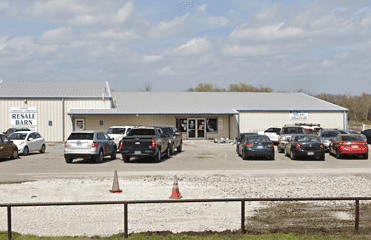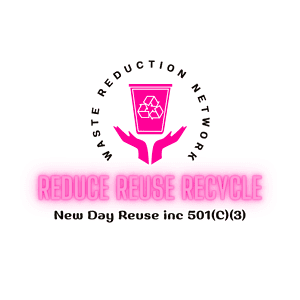
Lakeway Christian Community Resale Barn
Lakeway Christian Community Resale Barn, Farm to Market 120, Pottsboro, TX, USA
Let's uncover the best places to Reduce, Help, Donate


Lakeway Christian Community Resale Barn, Farm to Market 120, Pottsboro, TX, USA

Best way to start managing your business listing is by claiming it so you can update.
Promote your business to target customers who need your services or products.
Turn your visitors into customers with exciting offers and services on your page.
A waste reduction network refers to a system or network of individuals, organizations, and initiatives that collaborate and work together to reduce waste generation, promote recycling and reuse, and encourage sustainable waste management practices. Waste reduction networks can operate at various levels, from local communities to regional or national scales, and may involve partnerships between government agencies, non-profit organizations, businesses, educational institutions, and individuals.
The main goal of a waste reduction network is to minimize the environmental, social, and economic impacts of waste generation by implementing strategies and practices that prioritize waste reduction, resource conservation, and sustainability. This can include activities such as:
Waste reduction and prevention: Implementing strategies to minimize waste generation at the source, such as promoting sustainable consumption, reducing packaging, and encouraging product design that prioritizes durability and repairability.
Recycling and composting: Promoting and facilitating recycling and composting programs to divert recyclable and organic waste from landfills and incinerators, and supporting the development of local recycling and composting infrastructure.
Reuse and repair: Encouraging and facilitating the reuse and repair of products and materials to extend their lifespan and reduce the need for new production.
Education and outreach: Providing education and outreach programs to raise awareness about waste reduction, recycling, and composting, and promoting behavior change among individuals, businesses, and communities.
Policy and advocacy: Advocating for policies and regulations that promote waste reduction, recycling, and composting, and working with government agencies to develop and implement effective waste management policies and programs.
Collaborative partnerships: Building collaborations and partnerships between different stakeholders, including government agencies, non-profit organizations, businesses, educational institutions, and individuals, to collectively work towards waste reduction goals and share resources, knowledge, and best practices.
Innovation and research: Encouraging innovation and research in waste reduction technologies, processes, and strategies, and promoting the adoption of new technologies and best practices.
By working together in a coordinated manner, waste reduction networks can leverage resources, knowledge, and expertise to achieve greater impact in reducing waste generation, promoting recycling and reuse, and advancing sustainable waste management practices. Such networks can play a crucial role in creating a more circular economy and addressing the environmental challenges associated with waste generation and disposal.
